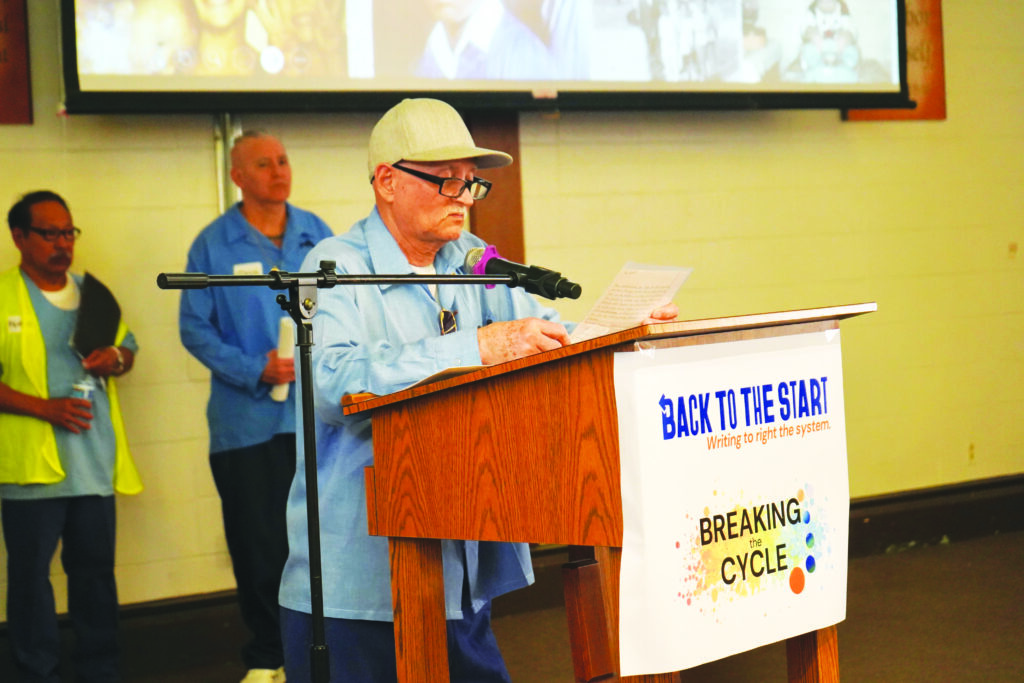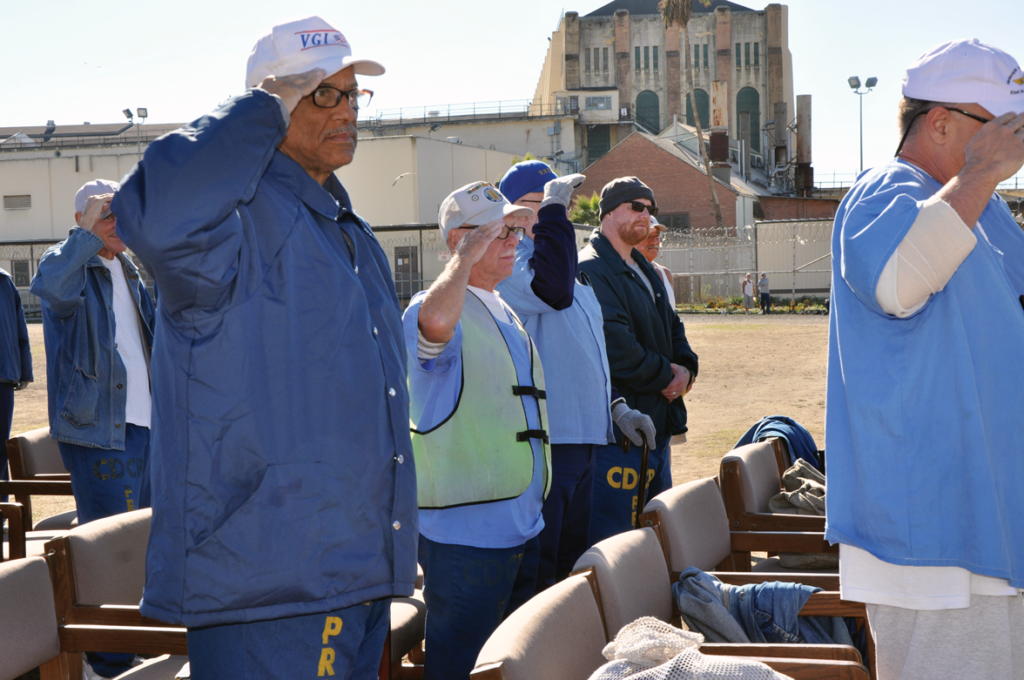Peer-led groups are driving force for rehabilitative success



Peer-to-peer self-help programming at San Quentin Rehabilitation Center finds success through current and past Community-Based Organizations curricula, bringing awareness to the rehabilitative efforts of incarcerated men.
For decades program curricula have been developed through psychiatric and post-doctoral education, leaving many laypersons scratching their heads trying to interpret most of the material.
These programs, which are generally provided by California Department of Corrections and Rehabilitation, are in stark contrast to the incarcerated self-help programs commonly referred to as CBOs.
CBOs are generally funded through philanthropy, and in today’s climate of rehabilitation and prison reform, incarcerated persons are looking to their lived experiences, and victim awareness, to develop reformative programs tailored specifically to their incarcerated peers.
These peer-led groups have become a testament to, and the barometer for, the transformation from victimizer to victim advocate.
At San Quentin Rehabilitation Center, formerly known as San Quentin State Prison, several current and former residents are giving back in a very big way.
Programs offer personal insight and reforms, enhancing community service, in addition to a focus on understanding the traumatic impact crime has on victims; incarcerated entrepreneurs of peer-led organizations aim to unveil the traumas suffered by victim and victimizer.
Back to the Start, an organization instituted by a San Quentin resident, provides a voice, through writing workshops, for incarcerated people to tell their personal stories, with the goal of directing resources to early childhood development, and developing strategies to keep families together. Its target audience is policymakers and the public, giving a voice to the voiceless.
Specialized training in the area of restorative justice is a vital tool in the reformation process, helping many people pre and post-parole.
No More Tears, a self-help program focused on restorative justice, utilizes the motto “We’re committed to stopping the violence, We’re committed to stopping the tears.”
The military might of the U.S. would not be possible without SQ’s current and former veterans. At San Quentin there is a community of military men doing all they can for the Veterans Healing Veterans group.
Where there is reform, there must also be inclusion. A program known as American Sign Language, was developed by an SQ resident in order to teach the hearing community how to communicate with their hearing-impaired peers.
Rehabilitation cannot be possible where the conversation surrounding domestic violence and victim awareness is absent. Hence, the Awareness Into Domestic Abuse program focuses on the effects of cycles of abuse and violence on childhood traumas and the victimization of others. AIDA teaches students how to identify those cycles.
Concrete Rose Truck Driver Training program was developed to give the incarcerated population a pathway into the trucking industry and to help incarcerated men and women to get “past their past” in their reentry/vocational program.
Reentry into society can be a daunting task for many, however the CBO Project La/Bay provides an in-depth, 18-month curriculum developed to provide the necessary tools to assist paroling individuals in finding success post-release.
Trusting Rehabilitation Utilizing Sociological Teachings, one of the longest running programs at The Q, focuses on reform, victim awareness, emotional intelligence, and criminal thinking (just to name a few), in its approach to rehabilitation.
One of the Q’s newest CBOs, Bridging Responsibility, Accountability, and Vulnerability through Empathy was formerly known as VOICES HEAL (Voices of the Incarcerated Ending the Silence through Healing, Empathy, Accountability, and Living Amends). It addresses sexual violence through and by people who have suffered domestic violence, sexual abuse, and/or gender-based violence.
Research has found that rehabilitation can be acquired through the art of gaming. Here at San Quentin, Skunk Works provides this outlet for many of its residents.
Data from peer-to-peer mentorship has revealed that accountability for past actions is the first step toward taking ownership of oneself.
Exploring Leadership and Improving Transitional Effectiveness provides a look into leadership and how that leadership transitions to life after prison.
The rate of recidivism in California is said to be highest between one and three years post-release, leading many to express the need, pre-release, to become cognizant of feelings, bodily sensations, and emotional awareness.
E.A.T., the newly composed Emotional Awareness Therapy program, is a 12-step emotional awareness CBO that focuses on the emotional, physical, and psychological awareness of abuse suffered during one’s adolescence.
E.A.T.’s goal is to train incarcerated people to become certified in Cognitive Behavioral Intervention, and how to mentor and foster relationships with the youth.
Hope For Lifers, another peer-to-peer led group, prepares lifers for upcoming parole board hearings by providing extensive mock parole board hearings. Helping men to obtain insight on the cause and effects of criminal thinking, the impact one’s crime has on victims, and uncovering “why” the crime was committed, is the strength of Hope for Lifers.
IMPACT, Incarcerated Men Putting Away Childish Things, has a name that speaks for itself. Here, men put away childish things and build on the maturity that makes rehabilitation possible.
Being faced with challenges such as isolation, inhumane conditions, and the struggles to be seen and heard, leads to the perseverance needed to bring awareness to one’s life circumstances. The men who started these organizations chose to lead, not for themselves, but for those coming behind them to follow their lead.
The hard work and dedication these innovators exhibit would not been successful were it not for the assistance of volunteers from outside of prison helping to push prisoners’ visions forward, and they must also be commended.
Programming at San Quentin is vital to reformation, rehabilitation, and the push to eradicate recidivism rates of the incarcerated.